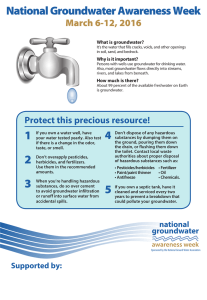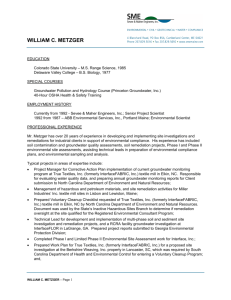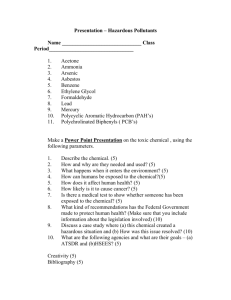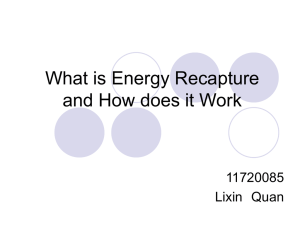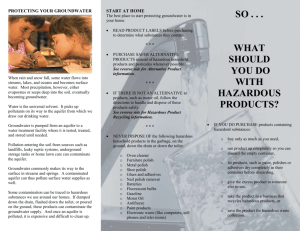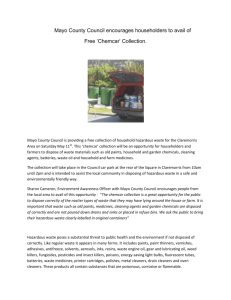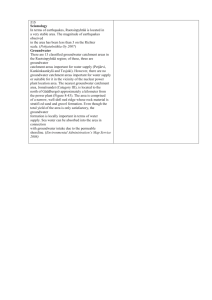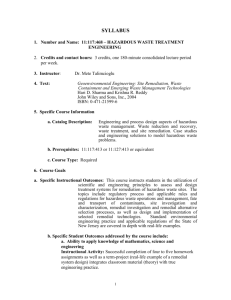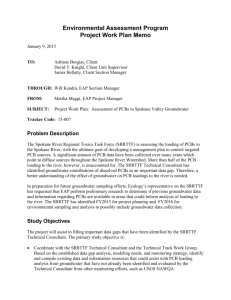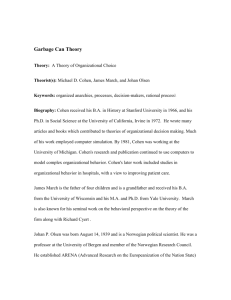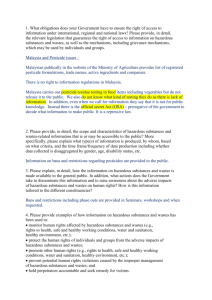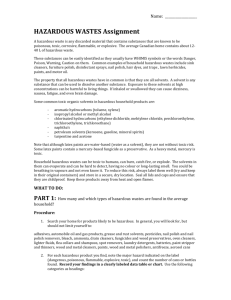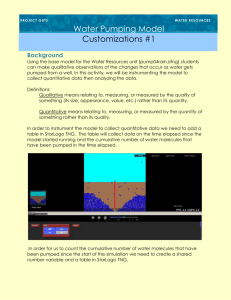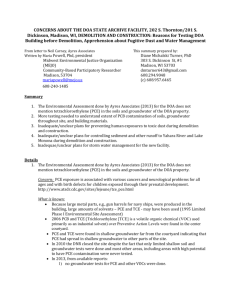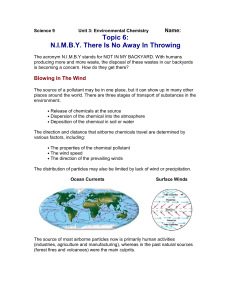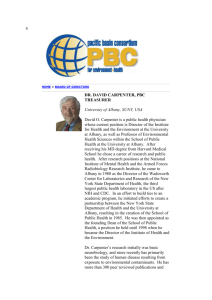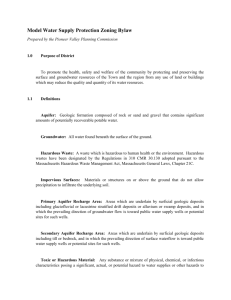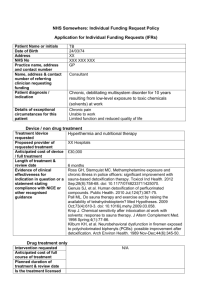Chapter 19 Word Study
advertisement
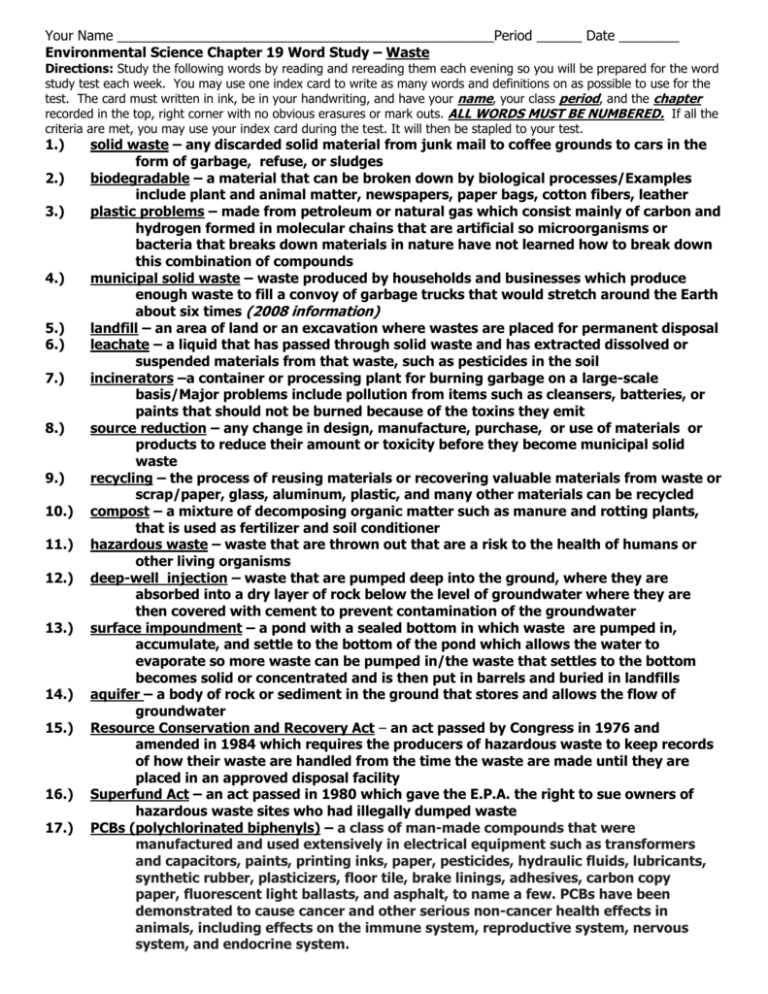
Your Name __________________________________________________Period ______ Date ________ Environmental Science Chapter 19 Word Study – Waste Directions: Study the following words by reading and rereading them each evening so you will be prepared for the word study test each week. You may use one index card to write as many words and definitions on as possible to use for the test. The card must written in ink, be in your handwriting, and have your name, your class period, and the chapter recorded in the top, right corner with no obvious erasures or mark outs. ALL WORDS MUST BE NUMBERED. If all the criteria are met, you may use your index card during the test. It will then be stapled to your test. 1.) 2.) 3.) 4.) 5.) 6.) 7.) 8.) 9.) 10.) 11.) 12.) 13.) 14.) 15.) 16.) 17.) solid waste – any discarded solid material from junk mail to coffee grounds to cars in the form of garbage, refuse, or sludges biodegradable – a material that can be broken down by biological processes/Examples include plant and animal matter, newspapers, paper bags, cotton fibers, leather plastic problems – made from petroleum or natural gas which consist mainly of carbon and hydrogen formed in molecular chains that are artificial so microorganisms or bacteria that breaks down materials in nature have not learned how to break down this combination of compounds municipal solid waste – waste produced by households and businesses which produce enough waste to fill a convoy of garbage trucks that would stretch around the Earth about six times (2008 information) landfill – an area of land or an excavation where wastes are placed for permanent disposal leachate – a liquid that has passed through solid waste and has extracted dissolved or suspended materials from that waste, such as pesticides in the soil incinerators –a container or processing plant for burning garbage on a large-scale basis/Major problems include pollution from items such as cleansers, batteries, or paints that should not be burned because of the toxins they emit source reduction – any change in design, manufacture, purchase, or use of materials or products to reduce their amount or toxicity before they become municipal solid waste recycling – the process of reusing materials or recovering valuable materials from waste or scrap/paper, glass, aluminum, plastic, and many other materials can be recycled compost – a mixture of decomposing organic matter such as manure and rotting plants, that is used as fertilizer and soil conditioner hazardous waste – waste that are thrown out that are a risk to the health of humans or other living organisms deep-well injection – waste that are pumped deep into the ground, where they are absorbed into a dry layer of rock below the level of groundwater where they are then covered with cement to prevent contamination of the groundwater surface impoundment – a pond with a sealed bottom in which waste are pumped in, accumulate, and settle to the bottom of the pond which allows the water to evaporate so more waste can be pumped in/the waste that settles to the bottom becomes solid or concentrated and is then put in barrels and buried in landfills aquifer – a body of rock or sediment in the ground that stores and allows the flow of groundwater Resource Conservation and Recovery Act – an act passed by Congress in 1976 and amended in 1984 which requires the producers of hazardous waste to keep records of how their waste are handled from the time the waste are made until they are placed in an approved disposal facility Superfund Act – an act passed in 1980 which gave the E.P.A. the right to sue owners of hazardous waste sites who had illegally dumped waste PCBs (polychlorinated biphenyls) – a class of man-made compounds that were manufactured and used extensively in electrical equipment such as transformers and capacitors, paints, printing inks, paper, pesticides, hydraulic fluids, lubricants, synthetic rubber, plasticizers, floor tile, brake linings, adhesives, carbon copy paper, fluorescent light ballasts, and asphalt, to name a few. PCBs have been demonstrated to cause cancer and other serious non-cancer health effects in animals, including effects on the immune system, reproductive system, nervous system, and endocrine system.
